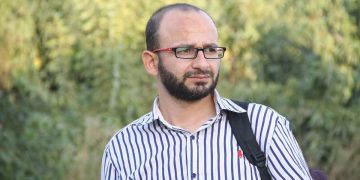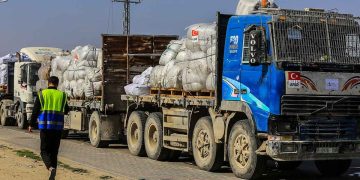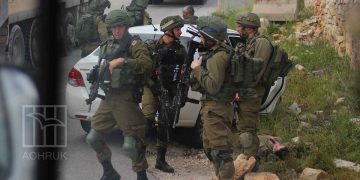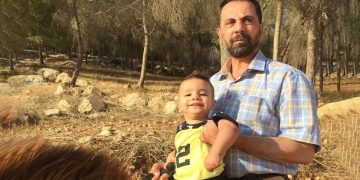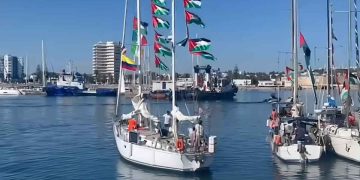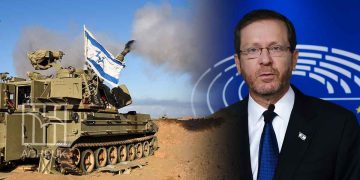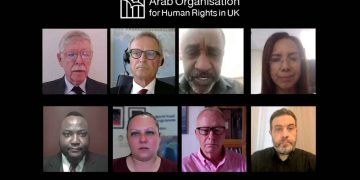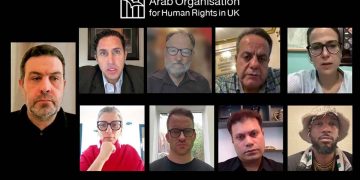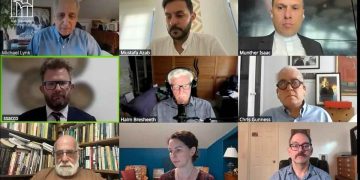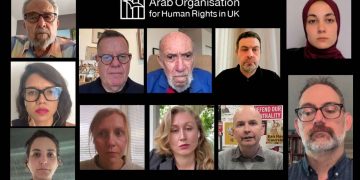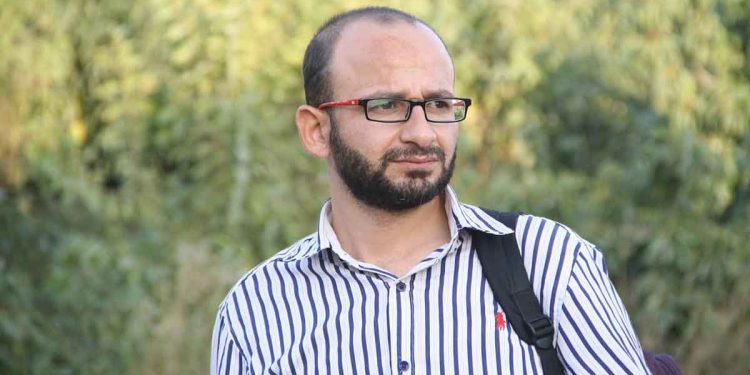The Preventive Security Service of the Palestinian Authority continues to hold journalist and former detainee Sami Al-Saii, 46, from the city of Tulkarm, for the fourth consecutive day, over posts he published on social media, a case that once again highlights the growing violations of press freedom and freedom of expression in the Palestinian territories.
Al-Saii was arrested last Monday afternoon while in his car in Tulkarm, without a formal arrest warrant, before being referred to the public prosecution on charges of “incitement and fomenting strife.” The Tulkarm Magistrate’s Court later ordered his detention for 15 days pending investigation.
According to his family, his psychological condition is extremely poor, particularly as he has yet to recover from the effects of his previous imprisonment in Israeli jails, where he was subjected to torture, solitary confinement and mistreatment.
The continued detention of Al-Saii raises serious concerns over the deteriorating state of media freedoms in the West Bank, amid a growing trend of political arrests and silencing of dissent. Arresting a journalist for his opinions or posts constitutes a direct violation of Article (19) of the Palestinian Basic Law, which guarantees freedom of opinion and expression, and also breaches Article (19) of the International Covenant on Civil and Political Rights, ratified by the State of Palestine, which affirms every individual’s right to freedom of expression and access to information without interference or intimidation.
This case underscores the continued misuse of criminal law for political purposes to restrict press freedom, as broad and vague accusations such as “fomenting sectarian strife” or “defamation of authority” are often invoked to justify arrests, which are charges that contradict the principles of necessity and proportionality governing restrictions on public freedoms under international law.
The prosecution of journalists for their views or professional work is not merely a violation of individual rights, as it constitutes an assault on the public interest, undermining transparency and accountability, and denying society its right to free access to information, which is a right the Palestinian authorities ought to safeguard, not suppress.
More broadly, the incident reflects a growing crisis of trust between the Palestinian Authority and the independent press, as well as the persistence of politically motivated detentions targeting activists, journalists, and human rights defenders, despite repeated calls to reform the legal and security frameworks in line with international standards.
From a legal standpoint, the continued detention of Al-Saii without clear legal grounds or guarantees of a fair trial amounts to arbitrary detention under UN definitions, obliging the authorities to release him immediately and provide compensation for material and moral damages.
This situation reaffirms the urgent need for serious measures to strengthen judicial independence, ensure that security agencies do not interfere in cases of a media or political nature, and restore the principles of rule of law and freedom of expression as the cornerstone of any democratic system that respects human dignity and fundamental rights.

